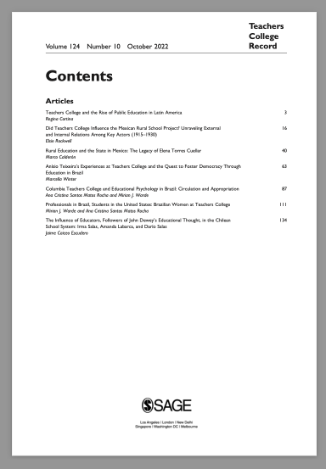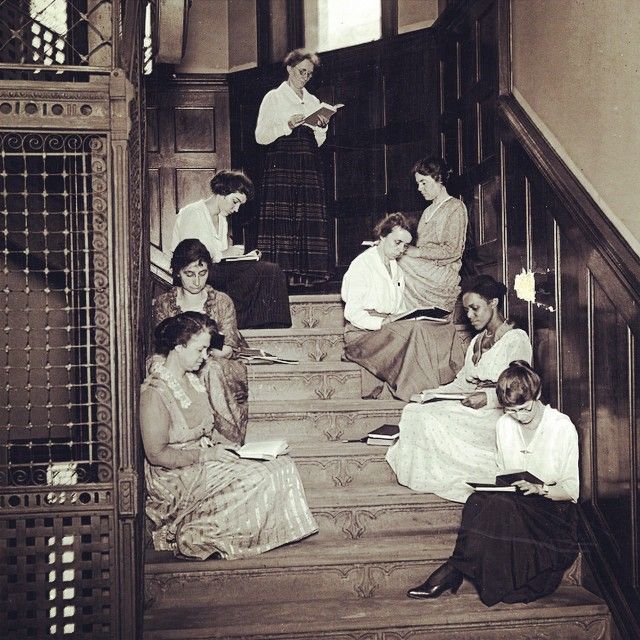The Teachers College Record Special Issue "Teachers College and the Rise of Public Education in Latin America" is part of a larger research project to document the impact of Teachers College (TC) on the development of public systems of education in Latin America and around the world. The articles published in this issue are the work of scholars focusing on the educational careers of TC graduates who returned to Latin America, analyzing how these graduates’ experiences as students in New York shaped their trajectories as educational leaders. It focuses on a highly influential initiative in TC's history, namely, The International Institute (1923-1938) and its effects on education in three Latin American countries: Brazil, Chile, and Mexico.
The articles in this special issue result from a grant from the Institute of Latin American Studies (ILAS), Columbia University to support faculty-student collaboration. Under Professor Regina Cortina’s leadership, students started by researching the educational history of several countries and ascertaining the relationship between various education leaders and TC. Once this research was completed, the team invited historians of education as authors to prepare manuscripts. The articles were mostly written either in Spanish and Portuguese and edited and translated into English. For the students, participation in the project provided an opportunity to conduct in-depth analysis of education as well as to receive mentoring in all the steps of academic research and publication.
We asked students in the International and Comparative Education Program, Amanda Earl and Marcella Winter, both doctoral candidates, and Gabriela Chacon Ugarte, a master's student, to reflect about how the experience has contributed to their academic training.
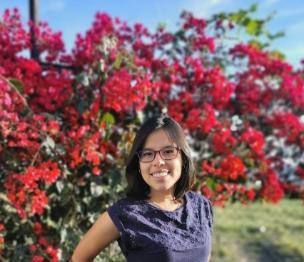
I began this project by searching for information on the trajectory of each of the Latin American alumni who studied at TC between 1920 and 1940. As a Spanish speaker, I felt fairly confident in obtaining many findings in a short period of time; however, I later discovered that the task was not so easy. I had to learn to use various search tools to obtain the primary and secondary sources that were in use at the time in the archives of the media, ministries of education, governments and nongovernmental organizations.
As I read through the handwritten letters, academic records, news and biographies that I found for some Chilean alumnae, I felt that I was reconstructing the beginning of feminism in that country. The lives of Amanda Labarca, Aída Parada and Graciela Mandujano were powerfully interrelated, and it seems incredible to me that they all had Teachers College as a common element.
Undoubtedly this experience served me well, both personally and academically. Thanks to Professor Cortina's guidance, I learned how to compile a diverse set of sources and turn them into a coherent narrative, adjusting the language and format to the standards of an academic paper. On a personal level, reviewing the lives of such illustrious figures from my region motivated me to co-found the Latin American Student Association at Teachers College. Along with three female students, and with Dr. Cortina as our advisor, we have started to create a community among Latin American students at TC.
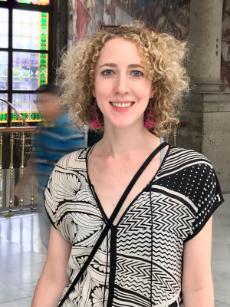
Working on this project contributed to my understanding of how to conduct research in a large, international team and the considerable cooperation, organization, and communication that it takes to go from the brainstorming and research phases all the way to publication in a renowned journal. English-language, US-based academic publications need to highlight more research that is not just about but from Latin America, and it was encouraging to be part of an initiative that, through funding from ILAS and support from TCR, was able to get important articles translated so they could read by a wider audience that will benefit from these scholars’ analyses.
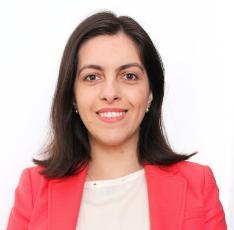
I have been working with Professor Cortina on topics related to TC alums and reforms of Latin American public schools since the last academic year. Through the research project led by her, which culminated in the TCR Special Issue, I was able to expand my knowledge of Brazilian education and the process of academic editing and publishing. I also had the opportunity to contribute to the publication by writing an article about Anísio Teixeira, one of the most prominent reformers in the history of Brazilian education. The article examines how the political context after the proclamation of the republic influenced the discussions on Brazilian public education and how Teixeira's education at Teachers College influenced his philosophy and practice while advocating for reforms in his home country. The article offers a timely discussion since Brazil has once again encountered the opportunity to reimagine how public schools can be, as dubbed by Anísio Teixeira, machines that generate democracy. The experience has helped me expand my knowledge of my dissertation topic and it has given me academic skills that will support my future endeavors.
